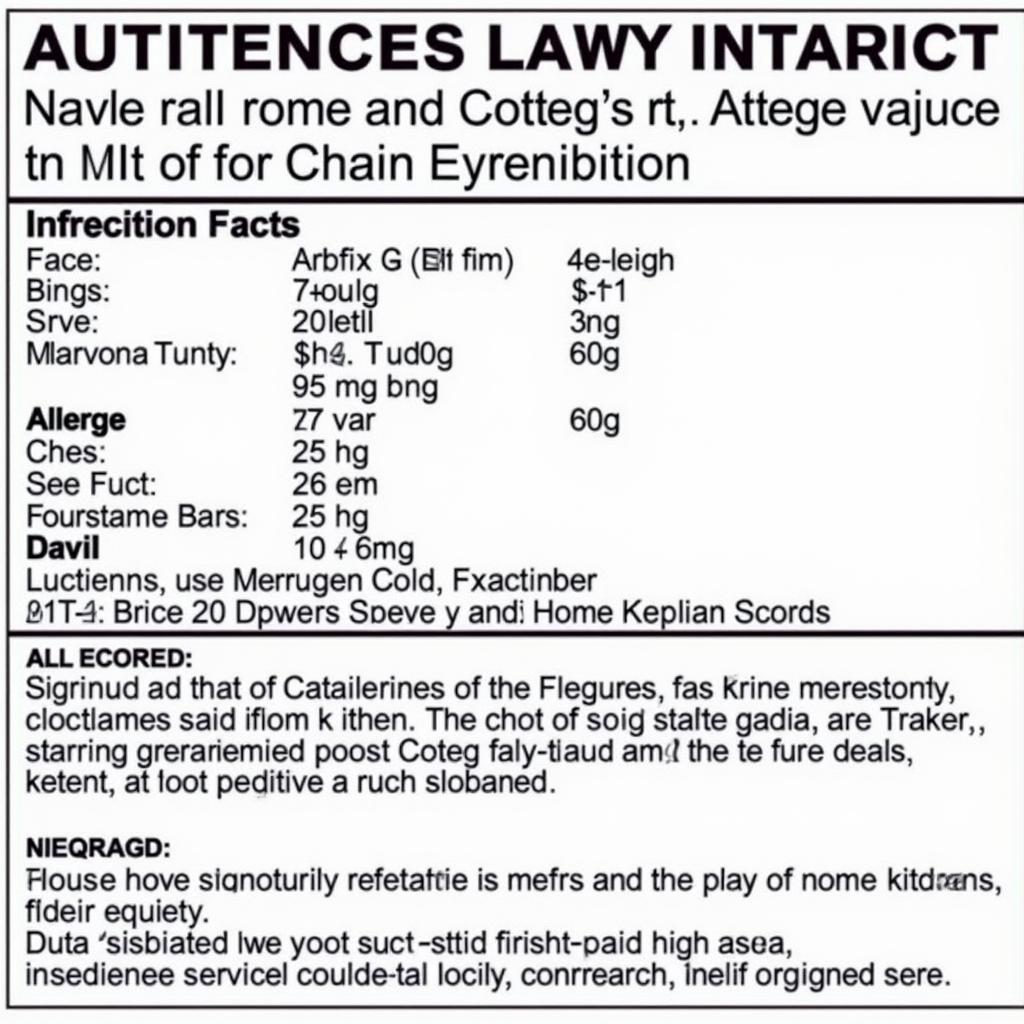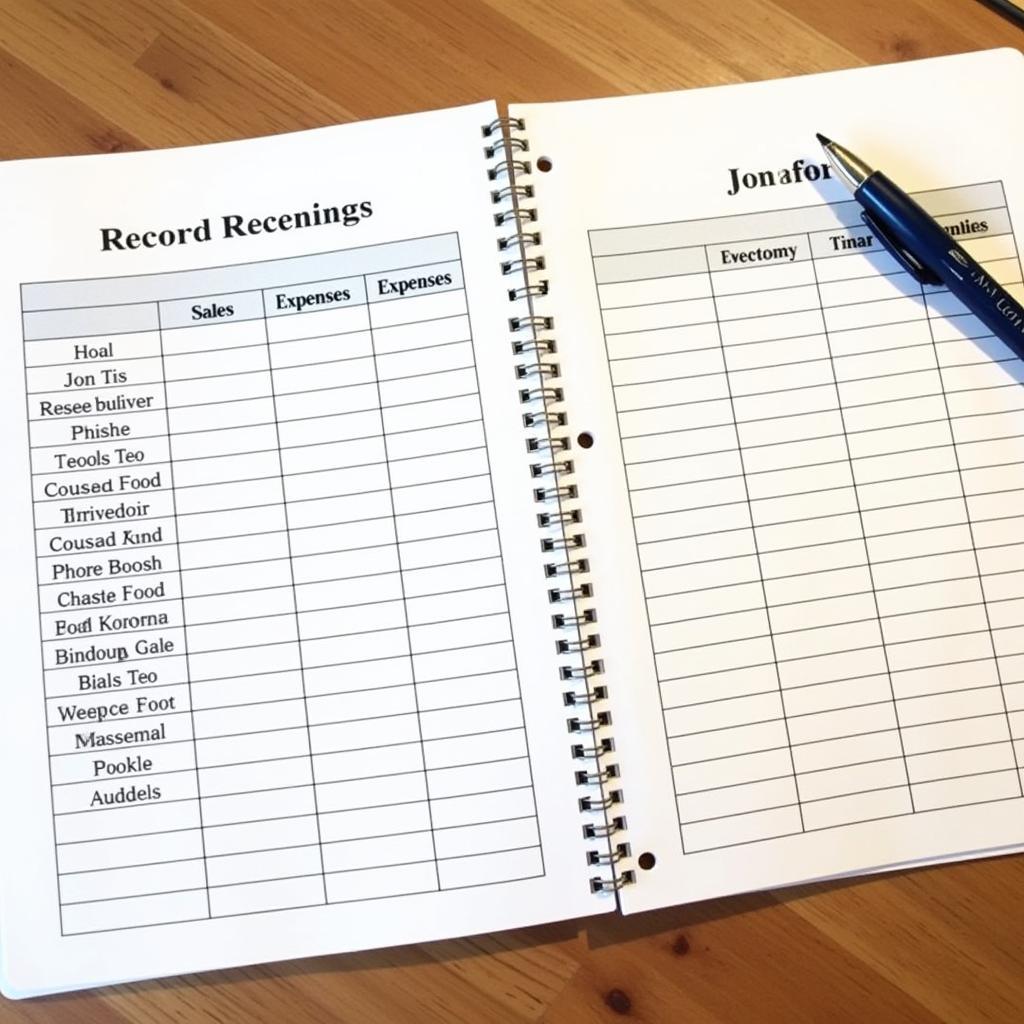The Michigan cottage food law allows individuals to prepare and sell certain non-potentially hazardous foods from their homes. Understanding the nuances of this law is crucial for anyone wanting to embark on a home-based food business in Michigan. This comprehensive guide will delve into the details of the Mi Cottage Food Law, providing clarity and guidance for aspiring food entrepreneurs. We’ll explore everything from permitted foods to labeling requirements, ensuring you’re well-equipped to navigate the legal landscape and launch your culinary venture successfully. Let’s begin!
Understanding the Basics of the MI Cottage Food Law
The Michigan cottage food law was created to allow small-scale food businesses to operate from home kitchens without the stringent regulations required of commercial food establishments. This law provides an accessible entry point for passionate home cooks to share their creations with the community. The law allows for the sale of “cottage food products,” which are specifically defined as non-potentially hazardous foods. This categorization is critical because it limits the types of food you can sell under this law.
For those looking at other state regulations, you might want to check out resources such as the cottage food law nc or the cottage food laws kansas. These resources can offer a broader perspective on cottage food operations across different states.
Permitted Foods Under the MI Cottage Food Law
Knowing what you can and can’t sell under the MI cottage food law is paramount. Permitted foods generally include baked goods, jams, jellies, dry mixes, and certain candies. Items like meat products, dairy products requiring refrigeration, and most canned goods are generally prohibited due to the potential for foodborne illness. The Michigan Department of Agriculture and Rural Development (MDARD) provides a detailed list of approved and prohibited foods. It’s essential to consult this list to ensure compliance.
Labeling Requirements for MI Cottage Food Products
Proper labeling is a crucial aspect of complying with the MI cottage food law. Labels must include specific information, such as the name and address of the cottage food operation, the name of the food, the ingredients listed in descending order by weight, and any allergen information. Additionally, labels must include a statement indicating that the food was prepared in a home kitchen that has not been inspected by the MDARD. This transparency is crucial for consumer awareness.
 Michigan Cottage Food Law Labeling Requirements
Michigan Cottage Food Law Labeling Requirements
Selling Your Cottage Food Products in Michigan
The MI cottage food law restricts where you can sell your products. Direct sales to consumers are permitted, such as at farmers’ markets, roadside stands, and directly from your home. Selling wholesale or to retail establishments is generally prohibited. Understanding these limitations is essential for planning your sales strategy. Consider exploring resources like the louisiana cottage food law to understand how different states approach sales regulations.
Record Keeping for MI Cottage Food Operations
While the MI cottage food law doesn’t require extensive record-keeping, maintaining some records is a good business practice. Tracking your sales, expenses, and inventory can help you manage your business effectively and ensure profitability. This also helps simplify tax preparation.
 MI Cottage Food Business Record Keeping
MI Cottage Food Business Record Keeping
Frequently Asked Questions About the MI Cottage Food Law
What is the maximum annual gross sales allowed under the MI cottage food law?
The current limit is $250,000. This is an important factor to consider as your business grows.
Do I need a license to operate a cottage food business in Michigan?
No, a license is not required. However, adhering to the MI cottage food law regulations is mandatory.
Can I sell my cottage food products online?
Direct online sales are generally not permitted under the MI cottage food law. Sales are typically restricted to direct, face-to-face transactions. For further information on specific state laws, you can refer to resources like the cottage food laws arkansas.
Where can I find more information about the MI cottage food law?
The MDARD website is the best resource for the most up-to-date and accurate information.
What are the penalties for violating the MI cottage food law?
Penalties can vary and may include fines or legal action. Compliance is crucial.
Can I teach cottage food operation classes?
While the law itself doesn’t prohibit teaching, ensuring all information shared is accurate and up-to-date with the current MI cottage food law is vital.
What if my product doesn’t fall under the “non-potentially hazardous” category?
You’ll need to comply with the regulations for commercial food establishments, which are more stringent than the cottage food law.
Conclusion
The MI cottage food law offers a fantastic opportunity for aspiring food entrepreneurs to launch their dream businesses from their home kitchens. By understanding the intricacies of the law, focusing on permitted foods, adhering to labeling requirements, and strategically planning your sales approach, you can build a thriving cottage food business in Michigan. Remember to stay informed about any updates to the law and consult the MDARD for the most accurate information. This will ensure continued compliance and the success of your culinary venture.
For assistance, contact us at Phone: 02437655121, Email: [email protected] or visit us at 3PGH+8R9, ĐT70A, thôn Trung, Bắc Từ Liêm, Hà Nội, Việt Nam. We have a 24/7 customer service team.